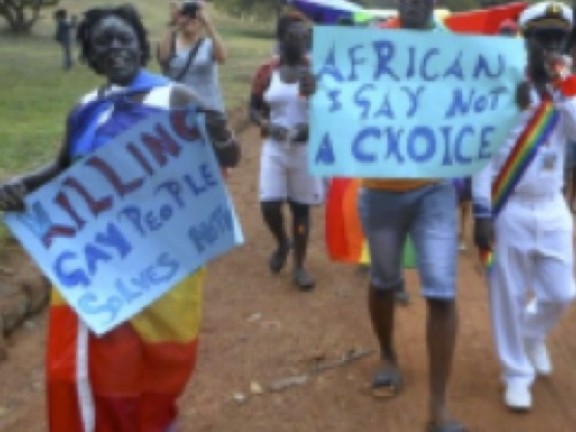Criminalizing Disease in Liberia, Gambia and Uganda

Following the failed model of legislative responses to the early HIV epidemic, the legislature in Liberia is reacting to the outbreak of Ebola by making being infected with a communicable disease a crime. Similar to HIV criminalization laws that are still on the books in 32 states in the United States, Liberia’s legislature is considering a bill that would make it a felony to “knowingly, intentionally or willfully infect another person or groups of persons” with any of a number of “communicable/contiguous diseases.” The diseases listed in the bill include not only Ebola, but also HIV, Hepatitis B and gonorrhea among several others.
Similarly, on August 25, 2014, the legislature in Gambia passed a criminal law which threatens anyone convicted of “aggravated homosexuality” with life in prison.
According to allAfrica.com, a defendant can be found guilty of “aggravated homosexuality” under a number of circumstances including when “the offender is a person living with HIV”.
This summer, Ugandan President Yoweri Museveni also signed a law criminalizing HIV which had been passed over the strong objections of international public health advocates who say it will hinder Uganda’s fight to control the spread of HIV.
The Ugandan law imposes a fine and a ten-year prison sentence for “intentional transmission of HIV” and five years for “attempted transmission of HIV.” It also allows for compulsory testing in some cases, such as during pregnancy, and would enable courts to order the release of individuals’ HIV status without consent. The bill was signed into law after Uganda’s Constitutional Court struck down the country’s notorious Anti-Homosexuality Act.